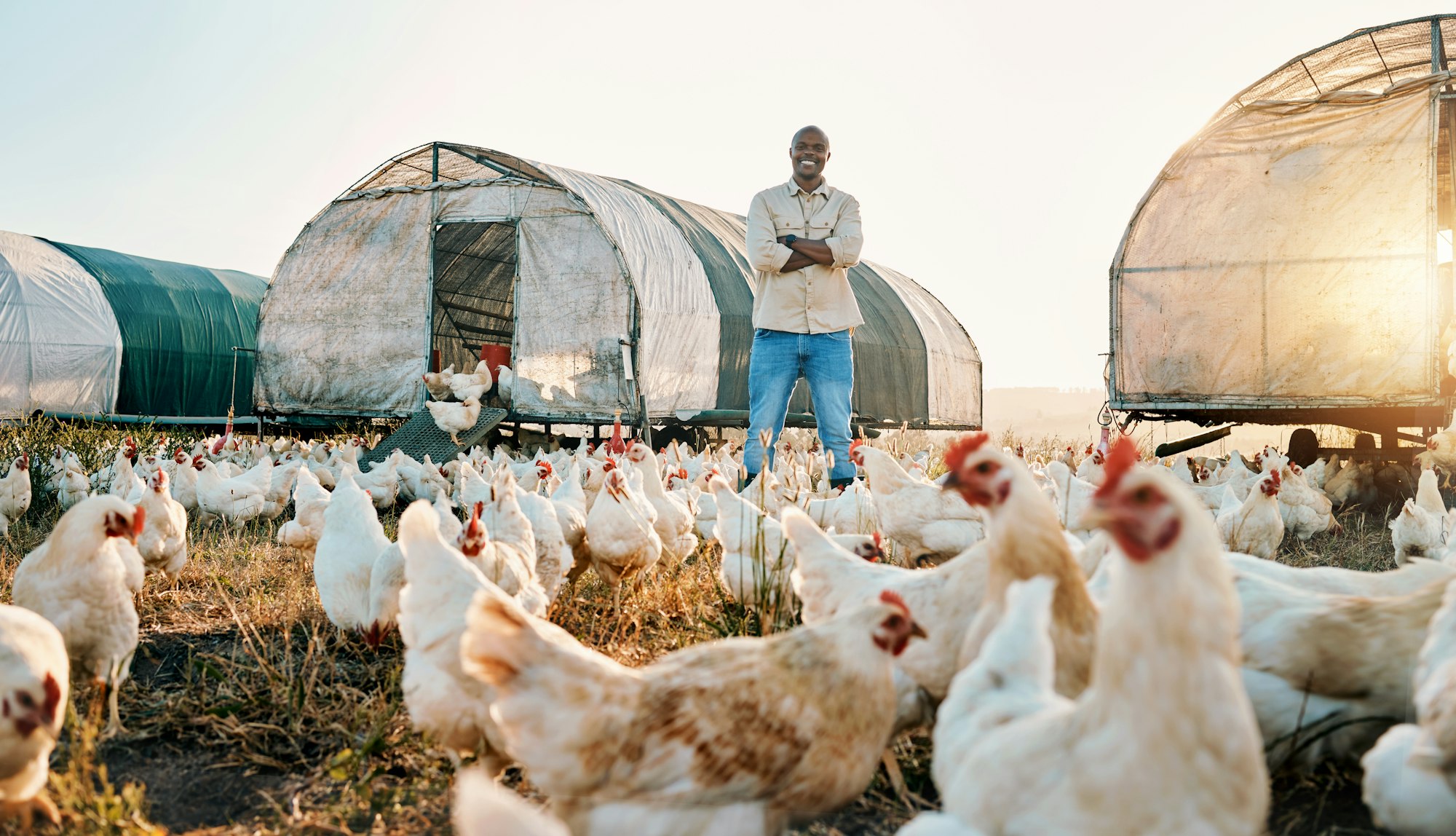How autogenous vaccines meet the specific challenges of poultry farming?

When commercial vaccines fail to address the needs of specific poultry farms, particularly in the case of rare or local diseases, autogenous vaccines offer a personalized alternative. These tailor-made vaccines are developed from pathogens isolated directly from a farm, providing targeted protection where standard vaccines may fall short. This customized approach ensures that even in regions with unique disease challenges, poultry producers can safeguard their flocks and maintain productivity. Autogenous vaccines have become an important tool in modern poultry health management, offering a solution when commercial vaccines are unavailable or ineffective. This article will show what autogenous vaccines are, their advantages, and the challenges and limitations they present in comparison to traditional vaccines.
What is an autogenous vaccine?
An autogenous vaccine offers personalised disease prevention. Autogenous vaccines provide a tailored solution for addressing specific disease challenges in poultry farms.
A lire également : How to Choose the Correct UV Lighting for a Parrot's Indoor Habitat?
A tailor-made solution for each farm
An autogenous vaccine is a custom-made solution designed to meet the specific needs of a poultry farm. Unlike commercial vaccines, which are developed to address common diseases affecting a wide range of flocks, autogenous vaccines are created to combat pathogens that are unique to a particular farm or region. These vaccines provide a more personalized approach to disease prevention, making them particularly valuable in areas where commercial options are insufficient or nonexistent.
By focusing on the specific pathogens present on a farm, autogenous vaccines offer enhanced protection against diseases that might otherwise go untreated. This customization allows poultry producers to address health challenges unique to their location, climate, or farm conditions, thereby reducing the risk of outbreaks and ensuring the long-term health of their flocks. Tailor-made vaccines can also provide peace of mind to producers who face unique challenges in maintaining the health of their poultry.
En parallèle : How to Safely Increase the Exercise Regimen for a Dog Recovering from Heart Surgery?
Explanation of the process of creating an autogenous vaccine
The process of developing an autogenous vaccine begins with the isolation of pathogens directly from the farm. Samples are taken from affected birds, and these pathogens are then cultured and analyzed in a laboratory to identify the exact strain of the disease-causing agent. Once identified, the pathogen is inactivated or weakened so that it can be used to create a vaccine that stimulates the immune system without causing illness.
This vaccine is then administered to the flock, providing immunity to the specific disease present on the farm. The entire process is highly specialized, as it relies on the collection of samples from a farm and the ability to create a vaccine that addresses a unique health issue. This customization ensures that the vaccine will be effective against the precise strain of the disease, offering better protection than a general commercial vaccine.
The value of autogenous vaccines in combating rare or local diseases
Autogenous vaccines are particularly valuable in combating rare or local diseases that may not be covered by commercial vaccines. In many cases, these diseases are not widespread enough to justify the development of a commercial vaccine, leaving poultry producers with limited options for protection. Autogenous vaccines fill this gap by providing a solution that is specifically designed to address these niche health threats.
The advantages of autogenous vaccines
Autogenous vaccines offer targeted protection against unique farm pathogens, allowing for rapid response to outbreaks and improved management of emerging diseases.
Meeting the specific needs of producers
One of the primary advantages of autogenous vaccines is their ability to meet the specific needs of poultry producers. Unlike commercial vaccines, which are designed for mass use and may not address every disease affecting a flock, autogenous vaccines are developed with a particular farm in mind. This customization allows for a more targeted approach to disease prevention, reducing the risk of outbreaks and improving the overall health of the flock.
By addressing specific pathogens, autogenous vaccines offer producers the flexibility to combat diseases that may not be adequately covered by commercial options. This personalized approach is especially beneficial for farms dealing with uncommon diseases or mutations of existing pathogens. Autogenous vaccines can also be developed more quickly than commercial vaccines, enabling producers to respond rapidly to emerging health threats.
How autogenous vaccines enable a rapid response to a new epidemic
One of the key strengths of autogenous vaccines is their ability to enable a rapid response to new disease outbreaks. When a novel pathogen emerges on a farm, commercial vaccines may not be available, leaving flocks vulnerable to infection. Autogenous vaccines can be developed quickly in response to these outbreaks, providing a timely solution to prevent the spread of disease.
The effectiveness of autogenous vaccines in managing emerging or mutant diseases
Autogenous vaccines are particularly effective in managing emerging or mutant diseases, which can pose significant challenges for poultry producers. These vaccines are tailored to the specific strain of the pathogen affecting the flock, making them more effective in combating diseases that have mutated or evolved over time. This adaptability is a crucial advantage, as it allows producers to stay ahead of potential health threats.
The challenges and limitations of autogenous vaccines
Autogenous vaccines face challenges such as high production costs, regulatory constraints, and limited scalability, making them a complementary solution to traditional vaccines.Haut du formulaireBas du formulaire
A complementary solution to traditional vaccines
While autogenous vaccines offer many advantages, they are not meant to replace traditional vaccines but rather complement them. Commercial vaccines are still essential for combating widespread diseases that affect poultry farms across the globe. Autogenous vaccines, on the other hand, are best suited for addressing specific, localized health challenges that commercial vaccines may not cover.
In many cases, producers will use a combination of both autogenous and commercial vaccines to ensure comprehensive protection for their flocks. This dual approach allows for a more robust disease prevention strategy, covering both common and uncommon pathogens. By working in tandem, autogenous and traditional vaccines can provide better overall protection and minimize the risk of disease outbreaks.
The constraints involved in producing and using these vaccines
Despite their benefits, there are several constraints involved in producing and using autogenous vaccines. The process of creating an autogenous vaccine is time-consuming and requires significant resources, including the collection of samples, laboratory analysis, and vaccine production. Additionally, the vaccines are often produced in limited quantities, making them more expensive than commercial vaccines.
There are also regulatory considerations to take into account. In many regions, the production and use of autogenous vaccines are subject to strict oversight, which can limit their availability. Furthermore, because these vaccines are tailored to a specific farm, they may not be as widely applicable as commercial vaccines, making them less suitable for large-scale operations that deal with a broad range of diseases.
When and why to favor this solution over commercial vaccines
Autogenous vaccines are most appropriate when commercial vaccines are unavailable or ineffective. For farms facing unique health challenges, such as emerging diseases or local pathogens, autogenous vaccines provide a personalized solution that offers targeted protection. In these situations, the benefits of customization outweigh the higher costs and regulatory hurdles involved in producing the vaccine.
In summary, autogenous vaccines offer a flexible, personalized solution for poultry producers facing unique disease challenges. By providing targeted protection against specific pathogens, these vaccines enable better management of health risks and contribute to the overall health and productivity of poultry farms. While they are not without their challenges, autogenous vaccines serve as a valuable complement to traditional vaccination strategies, offering an effective solution for farms dealing with rare or emerging diseases.
